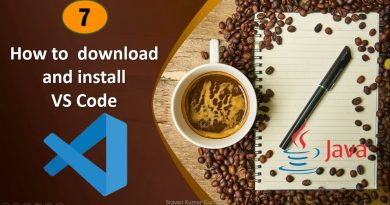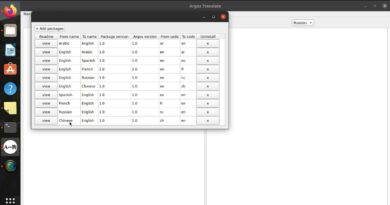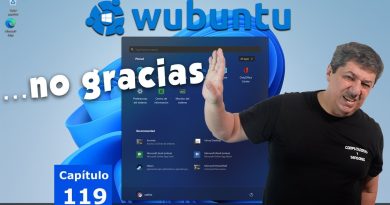Many switch to GNU+Linux for the wrong reason
The correct reason to switch to GNU+Linux is software freedom.
Any other reason is nonsense.
If you are not for software freedom then you are an enemy of software freedom. The supporters of software freedom ought to reclaim the discourse regarding the operating system from people not interested in the values of freedom.
Too many refer to the OS by wrong names and call free/libre software by wrong names all in attempt to distance the use of the software from the free software philosophy, it needs to end, and so it needs to be brought to an end.
If there should be anyone left who cares about software freedom in the future we need to make sure to spread the philosophy of software freedom.
Don’t be friends with opponents of software freedom, that is counterproductive to the cause. Don’t submit to their use of incorrect terminology. Never let them decide what software is right or wrong for you, for they do not care about your freedom. Proprietary software is evil, anyone who doesn’t oppose proprietary software doesn’t promote user freedom.
here is a good youtube channel to go listen to speeches by Richard Stallman, he is the one who started the Free Software Movement:
https://www.youtube.com/@freesoftwarefan
by awuuwa
linux foundation




At this point i just use Linux because it's not Windows or iOS/MacOS tbh
Believe in the force you must, Luke! …
I will not become a blind believer/follower/user of any OS … if it doesn't fulfill its purpose,
I will switch to something else.
I'm using Linux because voices in my head told me so
Much agreement here. Thank you for sharing your thoughts. Libre forever!
12:07 – since you're explicitly asking: the way you said it the first time ("… promote the philosophy that the operating system was started to pursue" (11:53)) I think was good. "started for to pursue" is less good… on the other hand, it might be made even better by saying "… was started in order to pursue" or, as an alternative, "… the philosophy that drove the development of the operating system in the first place."
And while you didn't ask for this one, since you did ask for some feedback, and since you appear to have a small channel, I'll also add what I hope is helpful feedback to say that I found your words somewhat repetitive at times — might be worth trying to clean that up a bit for future videos. Then again, repetition can be good, as it can drive a point home that might be missed if said only once, so… up to you! Just thought I'd let you know that I found it repetitive enough that part of me wanted to skip the rest at various points. I didn't do so, just kinda wanted to, and worry that others might actually do so.)
One other small critique I have, regarding the specific point at 16:08 – while I do in many ways think it's important to credit the people who did the work, AND, I agree even more so that it's important to promote the GNU project, since it is closely associated with the ideas at play here, I think promoting the ideas is the most important part. And there are, in my opinion, some good reasons not to want to promote Richard Stallman specifically — and perhaps even not to promote the FSF. My point, then, is that if one prioritizes promoting the ideas (or values) rather than the people (or even organizations), then one can continue to do so, even if the people (and/or orgs) fall out of favor, for whatever (good, bad, or neutral) reason(s).
Anyway, overall really appreciate hearing you talk about this important issue! Thanks!
I've been using computers since the 1980s. I've used more operating systems than most people I know. At least a dozen different operating systems on a lot of different platforms/CPUs.
Nobody needs to convince me of the problem of being locked in by some vendor. I've had my share of it. I've seen software "empires" rise and fall and what was the BIG THING become so completely forgotten that people can't even remember its name.
I've wriiten software and supported systems that took time, effort and a good part of emotional involvement to produce, suddenly become obsolete, taking bits of my life with it.
I truly, deeply understand the problems involved.
Software does not endure. It may evolve but it does not endure.
When you come across software like vim, emacs, Lisp, things that have lasted the test of time, treasure them.
So, in my experience, Emacs is an unique experience.
Emacs is not just an application. Emacs is a development platform.
It is a truly weird beast, because it is both an application and a development platform.
Stallman designed it to be both a useful thing and an open-ended thing.
An extensible editor, using a language that itself is extensible.
Emacs is the bait.
If you know anything about fishing, you will know that you can't catch all fish with the same kind of bait. You can't catch a marlin or a tuna, using the same method as you use to catch a catfish.
But Emacs is the bait. eLisp is the lure.
Stallman wanted to get his idea to sink in deep into the minds of his users.
He wanted them to have the "Oh.My.God! I can do anything!" experience. To understand software as an open-ended experience, to know that there are no limitations.
I'm 65 years old.
It took me until this year, 2024, to try Emacs.
But Stallman was waiting for me. He had prepared his trap long ago. He knew it was good.
I suppose the experience was like King Arthur first pulling Excalibur out of the stone, and seeing it shine, feeling the power course through his arm, waving it aloft, and sensing that a new day had dawned on humanity, a day of freedom from oppression.
Emacs, Lisp, they are Excalibur.
I experimented w/ GNU/Linux prior to learning about end-user freedom/liberty, I was more interested in the free/gratis nature of it & – at best – maybe some allusions to 'open source'. You are correct that being free/libre software is by far the most important thing about GNU & Linux & any other free software, & that this aspect of any applicable software should be communicated first & foremost so the concept of user freedom is evangelised to & understood by more computer users.
Well, there are only a few actively-maintained and usable GNU-endorsed GNU/Linux distros like PureOS, Trisquel and Parabola so people who pick these would hopefully be doing so for the correct ideological reasons. If someone switched from Windows to Ubuntu, would you say they switched to GNU Linux?